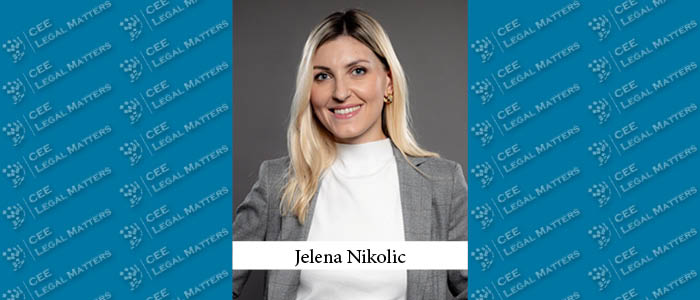Amendments to laws and other regulations must stipulate transitional and final provisions. They regulate, among other things, the date of entry into force of the act, which is, as a rule, eight days starting from the day of its publication in the "Official Gazette of the Republic of Serbia", while in certain cases later implementation of the act or its certain provisions is foreseen.
By the aforementioned practice, the legislator actually made a difference between the date of entry into force of the regulation and the commencement of its application.
The justification for this action of the legislator is found in the need to carry out preparatory actions in order to smoothly implement the regulations. For the stated reason, as a rule, in the period between the entry into force of the law and the beginning of its application, by-laws are adopted.
Such is the example of the adoption of the Law on Dual Education, which entered into force on November 18, 2017, and the application of which was foreseen starting from September 1, 2019. The transitional and final provisions of the law in question stipulate for the following:
- "By-laws for the implementation of this law shall be adopted by the minister within six months starting from the date of entry into force of this law.
Acts referred to in Article 12, paragraph 13, and Article 30, paragraph 11 of this law shall be adopted by the Chamber of Commerce of Serbia within three months starting from the date of entry into force of this law.
Until the start of the application of the law regulating the national framework of qualifications, the qualification standard in dual education is determined in accordance with the law regulating the basics of the education and upbringing system, except for the part related to the job description determined by the Serbian Chamber of Commerce."
- "This law enters into force on the eighth day starting from the day of its publication in the "Official Gazette of the Republic of Serbia", and it applies from the school year 2019/2020. years."
After the entry into force of the Law on Dual Education and prior to the commencement of its implementation, the following by-laws were adopted:
- Rulebook on the training program, closer conditions, and other matters of importance for taking the instructor exam as of September 29, 2018. years;
- Rulebook on the method of assigning students for learning through work as of December 29, 2018;
- Rulebook on the conditions, working methods, activities, and composition of the team for career guidance and counseling in a high school that implements educational profiles in dual education as of January 24, 2019;
- Rulebook on the organization, composition, and method of work of the commission for determining the fulfilment of the conditions for performing learning through work at the employer as of June 23, 2018. (ceased to be valid on September 25, 2019).
Therefore, all the above-mentioned by-laws were adopted after the entry into force of the Law on Dual Education, and before the start of its application.
When adopting, as well as amending general acts, employers in practice often act as the legislator himself.
However, according to the opinion of the Supreme Court of Cassation, what the legislator can do, the employer cannot do!
One of the cases from our past practice confirmed the above.
Namely, the employer rendered amendments to the Rulebook on the organization and systematization of jobs by which he canceled certain jobs and stated that the amendments enter into force within eight days from the date of publication of the act on the notice board and that they shall be applied two months after the entry into force (e.g. starting from April 1, 2023). After the amendment entered into force, and prior to the commencement of implementation, the employer submitted a resolution on termination of the employment agreement to the employee who was the sole executor of the jobs that were canceled, while the resolution in question stipulated that the employment relation ends on April 1, 2023. year, i.e. on the date of the start of application of the amendments to the Rulebook on organization and systematization of jobs.
The Court of Appeal found that the resolution in question was unlawful due to the fact that it was rendered based on a non-existent act. The court's understanding is that the resolution on termination of the employment agreement could not have been rendered before the amendments of the Rulebook on the organization and systematization of jobs began to be implemented.
The Supreme Court of Cassation took the same stand and elaborated that the Constitution of the Republic of Serbia does not stipulate a distinction between the date of entry into force of a general act and the moment of its application. Therefore, the period starting from the "date of entry into force" to the "date of application of the law" should be considered as vacatio legis, and during the said period the regulation does not actually exist.
Although the practice applied by the legislator in this regard was pointed out to the court by the revision (example of the Law on Dual Education and by-laws), the court's explanation was as follows:
"Legislator, i.e. the one rendering a general act, is unfortunately more and more likely to approach this practice, in a situation where it takes a certain amount of time to prepare the implementation of that law, whether financially, technically, or in some other sense."
"All the facts from the revisions that indicate the phenomenon in practice that the moment of entry into force of the general act and the moment of its application do not coincide, what is completely correct, do not lead to a different conclusion because that difference was established in the aforementioned goal - preparation for the implementation of the general act so that in that period, as already stated earlier, the general act practically does not have a legal effect, so, in essence, the legislator, i.e. the one rendering a general act, when he foresees the delayed effect of the law, therefore prescribed that this act does not legally exist during that time. "
If the stand of the Appellate Court, as well as the Supreme Court of Cassation, were to be accepted, it would mean that not only individual, but also any general by-laws that were adopted in the period between the date of entry into force of the law and the expected date of application of the law, do not exist, and that natural persons and legal entities are not obliged to act according to them, i.e. to respect them - which is not the case in practice.
From the aforementioned example, we can conclude that the consequences of acting by analogy with the actions of legislators, currently valid judicial practice, as well as the opinions of competent authorities can have serious negative consequences for business.
This is of particular importance, bearing in mind that in labour law disputes, courts practically do not use the possibility of acting in accordance with Article 191, paragraph 7 of the Labor Law, which prescribes "if the court determines during the procedure that there was a reason for the termination of the employment relation, but that the employer acted contrary to the provisions of the law that prescribes the procedure for termination of employment, the court will reject the employee's request for reinstatement, and will award the employee an amount up to six times the employee's salary as compensation.”
Therefore, the essence is important, but the form is obviously more important.
By Jelena Nikolic, Partner, JPM & Partners, JPM & Partners


